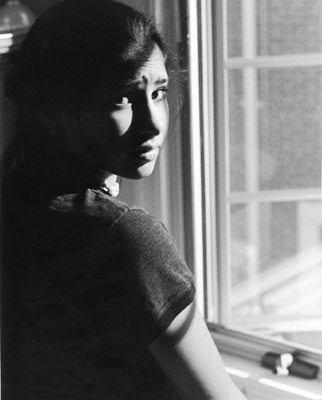All Nonfiction
- Bullying
- Books
- Academic
- Author Interviews
- Celebrity interviews
- College Articles
- College Essays
- Educator of the Year
- Heroes
- Interviews
- Memoir
- Personal Experience
- Sports
- Travel & Culture
All Opinions
- Bullying
- Current Events / Politics
- Discrimination
- Drugs / Alcohol / Smoking
- Entertainment / Celebrities
- Environment
- Love / Relationships
- Movies / Music / TV
- Pop Culture / Trends
- School / College
- Social Issues / Civics
- Spirituality / Religion
- Sports / Hobbies
All Hot Topics
- Bullying
- Community Service
- Environment
- Health
- Letters to the Editor
- Pride & Prejudice
- What Matters
- Back
Summer Guide
- Program Links
- Program Reviews
- Back
College Guide
- College Links
- College Reviews
- College Essays
- College Articles
- Back
Child-Bride Cases in Saudi Arabia
Earlier this year, the Saudi justice ministry has drafted a bill that sets 16 years as the minimum age of marriage for girls, but allows for exceptions. Despite the establishment of such a young minimum age for marriage, child-bride cases that involve girls below the minimum age are still prevalent in the kingdom.
A court investigation has recently been ordered into the marriage of a 12-year-old girl. A principal of the school the fourth-grader attends notices that the child does not look well, and quickly sends her to a local hospital upon learning that she has been married. Although no details has been revealed regarding the circumstances of the marriage and the background of the child’s husband, it is not atypical in the patriarchal society of the conservative kingdom for young girls to be married off to much older men under financial incentives, such as lavish dowries. Moreover, under the Saudi law, a father is granted the right to marry his daughter to whomever he pleases, despite their young age. In other words, the legal system only seems to recognize paternal rights, while turning a blind eye to the well-being and interests of the child.
Embedded in the cultural traditions of their society, the practice of child marriage is advocated by the Saudi clerics and even the kingdom’s most senior religious figure. This proves that any call to stop such a practice will be also be an intense battle against strong-rooted customs upheld by the society.
It has been reported that cases of child marriages, involving brides as young as eight-years-old, have made headlines in local and international media in recent years, drawing heavy criticism of the conservative U.S. ally.
The young female generations of Saudi Arabia suffers from the shackles of discrimination, which too often times views them merely as a tool that can be taken advantage of in order to benefit the dominant male counterpart of their society. Having to acquiesce in their father’s decision regarding who and when to marry, young Saudi girls are deprived of a future in which they can strive for their own dreams and goals. Exchanging them for financial purposes, such as dowries, is equivalent to putting a price on the girls. Barely having the chance to experience the world around them, they must then enter a married life which they have no clear understanding of. At such an early age, the girls are neither psychologically nor physically ready for marriage. Just as a fragile seedling that has barely had the chance to immerse in the warm radiance of the sun and perceive the natural world around them, Saudi girls are forcefully removed from their homes and expected to grow in the midst of an unwelcoming and adverse environment, away from sunlight and freedom. The door of opportunities to live freely for themselves and find their passions in life are slammed right in front of them at too early of an age.
The young age at which these girls are forced into marriage should instead be the prime age for the girls to receive a proper education. It is the prime age for the girls to build mutual friendships. It is the prime age for the girls to build a pathway to a future where they can develop into proud individuals with their own sense of identity--an identity that is not forced upon them.
If the Saudi society continues to maintain their practice of child marriages, they are at the same time constructing the foundation of their future generations on top of a frail and unsteady base. At such premature ages, many Saudi girls must give birth to their own children and raise them. They must bear the huge responsibility of becoming a housewife and a mother figure. Barely having the chance to discover their identity during their youth, they must then be held responsible for another human being and raise a child despite the fact that they themselves are still children. Just as the proverb which states that a woman’s natural role is to be a pillar of the family, one cannot agree more that a woman plays a crucial part in the healthy development of a family. However, the Saudi practice of child marriages reflect the fact that many Saudi families are built without the proper support of a mature mother figure who is ready and capable of facing the challenges a woman must face in order to sustain and support her household. Child marriages impose a detrimental short-term and long-term impact upon the future of Saudi families, which should be the fundamental pillar of their society.
As fellow human beings who have been fortunate enough to be granted the opportunity to enjoy our youth, receive a proper education, dream our own dreams, and lay out the path to our own future, it is indeed our duty to share our knowledge and fight for the rights of Saudi girls to discover the countless opportunities awaiting them and pursue a purposeful life.

Similar Articles
JOIN THE DISCUSSION
This article has 0 comments.
